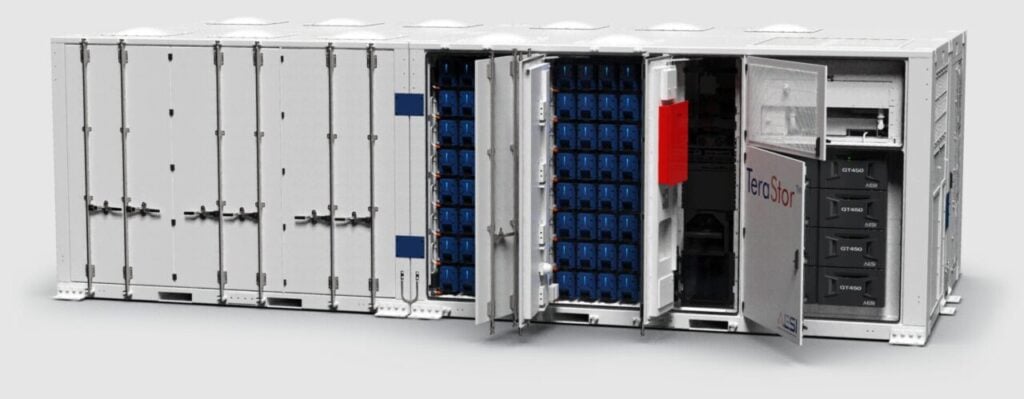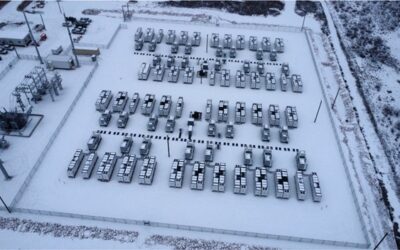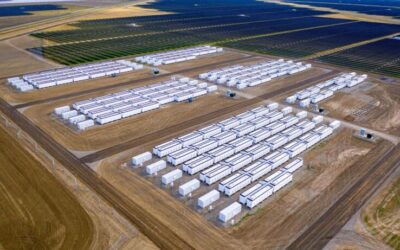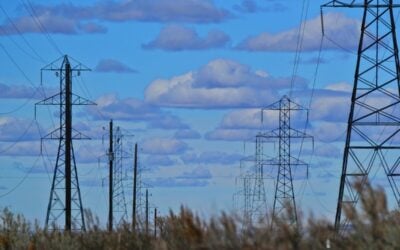
Details on the wind-down of US-based BESS firm American Energy Storage Innovations (AESI) have come out, while battery recycler Li-Cycle has filed for Chapter 15 bankruptcy and been ordered to cease stock market trading.
The two companies operate in completely different sections of the battery and battery energy storage system (BESS) value chain and so the factors behind their business struggles are also completely different.
But, both could point to a sign of things to come for others in the US battery ecosystem as the effects of US-China tariffs and a potential repeal of clean energy tax credits start to bite.
American Energy Storage Innovations (AESI) voluntary wind-down
As Energy-Storage.news exclusively reported earlier this month, US-headquartered BESS technology firm AESI made the decision to wind down its business. All its employees’ contracts were terminated before a General Assignment for the Benefit of Creditors was executed on 12 May.
Try Premium for just $1
- Full premium access for the first month at only $1
- Converts to an annual rate after 30 days unless cancelled
- Cancel anytime during the trial period
Premium Benefits
- Expert industry analysis and interviews
- Digital access to PV Tech Power journal
- Exclusive event discounts
Or get the full Premium subscription right away
Or continue reading this article for free
We’ve learnt since that the decision was taken in light of the rising costs of materials, tariffs, and the fact it produces its technology overseas, primarily China and Malaysia. Despite the company’s name, CEO Bud Collins was adamant that China was the only economical place to build its product in an interview with us last year (Premium access), in which he discussed the company’s ‘Terastor’ AC block technology and manufacturing process in detail.
The company’s board decided to go for a wind-down and liquidation of the business in order to maximise potential recoveries for its creditors. Physical assets will be liquidated while a sales process for its intellectual property (IP) and business pipeline assets is ongoing.
Up for sale are its IP and components of the platform, as well as its sales pipeline, while its EMS, BMS, SOC/SOH/SOB algorithms are also available for a carve-out. The company claims a total sales pipeline of over US$18 billion, on top of a committed orders of US$93 million with high-likelihood orders of another U$306 million.
It announced 1.5GW of letters of intent with utility and power generation firm ESB for projects in Scotland in the UK last year, though it’s not clear which part of the pipeline this might come under, if any.
AESI has 4GWh of contracted manufacturing capacity in Suzhou, China, and was set to double that with another 4GWh in Malaysia in early 2026.
Li-Cycle files for Chapter 15 bankruptcy protection
Meanwhile, North American battery recycling firm has filed for Chapter 15 bankruptcy protection in the US and received a cease trade order (CTO) from the Ontario Securities Commission (OSC), where it is listed on the stock market.
The Chapter 15 process kicked off in mid-May and protects it from creditor claims while it aims to find a buyer for its assets via a court-supervised sale and investment solicitation process (SISP). The company announced plans to sell its assets on 1 May, when founder and CEO since 2016 Ajay Kochhar stepped down.
‘Li-Cycle requires additional financing to meet its obligations and repay its liabilities arising from the ordinary course of business operations when they become due in order to continue as a going concern,’ the company said on 1 May.
‘Considering the Company’s current circumstances, Li-Cycle will need to significantly modify or terminate its operations and may need to dissolve and liquidate its assets under applicable insolvency laws or otherwise file for insolvency protection.’
Problems for Li-Cycle first emerged in late 2023 when it announced it would pause construction on its main recycling ‘hub’ facility in New York (Premium access article) in light of soaring costs. Though it has continued to derive revenues from its ‘spoke’ black mass production facilities, with US$28 million in 2024, it has not been enough to continue it as a going concern.
The CTO from the OSC is due to failure to file periodic disclosures as per the stock market’s rules.
Li-Cycle had argued to Energy-Storage.news earlier this year that US-based recycling would ‘help bolster energy independence and national security’ and was also growing the percentage of its feedstock from the BESS industry.
One source commented that one big mistake Li-Cycle made was opting for a proprietary battery recycling technology approach when more off-the-shelf options were available, which helped explain the soaring costs for the New York hub.





